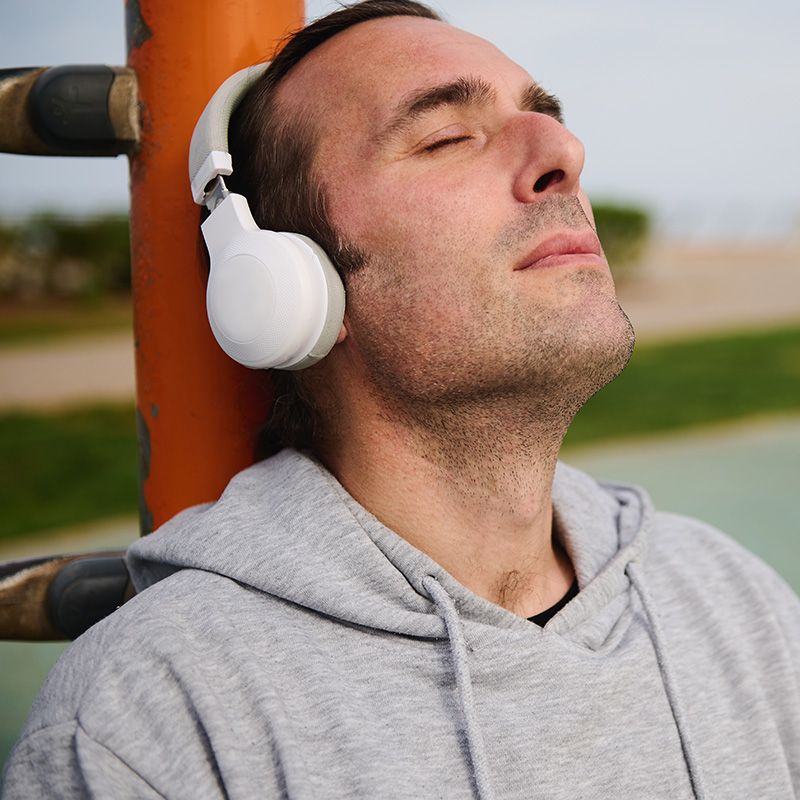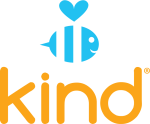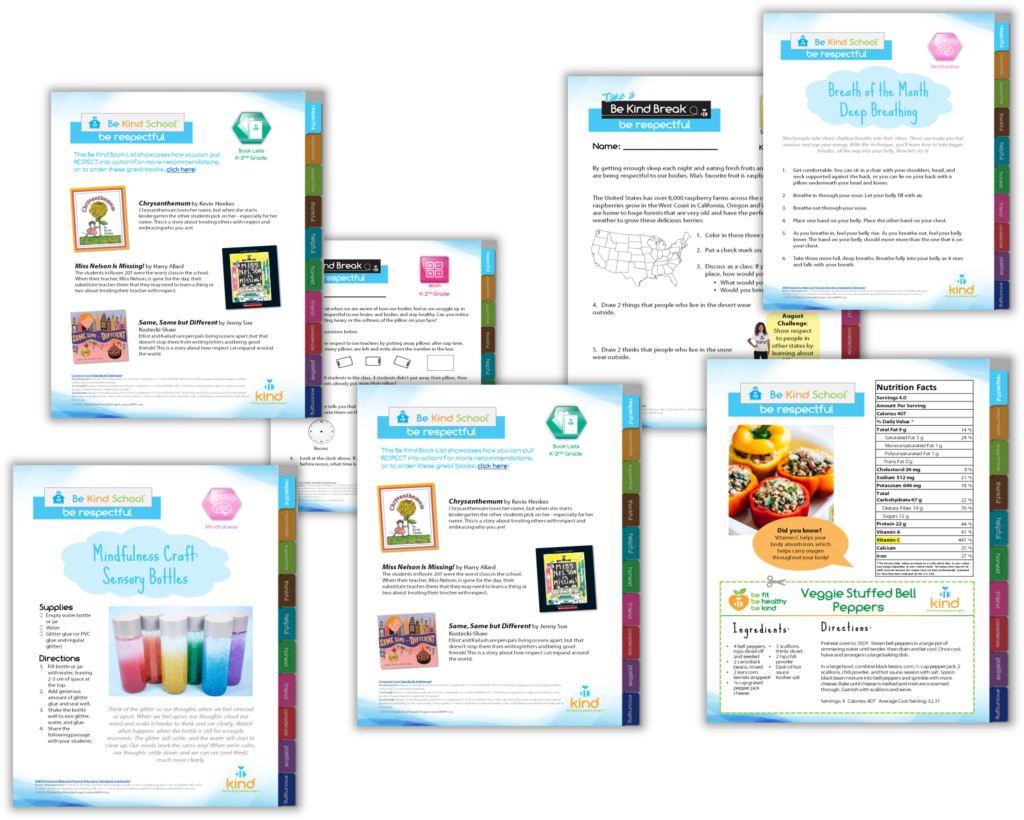- About
- Programs
- After School Classes
- All-School Assemblies
- The BE KIND Business
- The BE KIND Community Education Center
- The BE KIND SCHOOL
- BE KIND on the MOVE
- Classroom Resources
- #CyberSkills
- Family Engagement
- Fitness Programs
- Gardens
- Grace’s Group
- Health & Wellness
- Summer Programs
- Teacher Training
- Wellness Wednesday
- Athletes for Arizona
- Events
- Get Involved
- Donate
Tune Into Wellness: Exploring Music and Holistic Healing

Melodies for Mindfulness:
Exploring the Therapeutic Arts
Welcome to a symphony of wellness! In this Wellness Wednesday, we’re diving into the transformative power of music as a healthy habit and therapy, alongside a medley of other therapeutic options like meditation, art, and holistic practices for World Music Therapy Week. Get ready to explore how these harmonious elements can enrich our lives, soothe our souls, and elevate our well-being. Whether you’re seeking serenity through meditation, expressing yourself through art, or finding solace in the melodies of your favorite songs, there’s something here for everyone. So, let’s tune in, unwind, and embark on a journey of holistic healing together!

Why Music Therapy
Music therapy is a specialized form of therapy that utilizes music to address physical, emotional, cognitive, and social needs. It involves musical interventions by a trained therapist to achieve therapeutic goals and improve the well-being of individuals. Music therapy can take various forms, including listening to music, creating music, singing, playing instruments, and engaging in music-based activities.
Music therapy can help in numerous ways according to Harmony and Healing:
- Emotional Regulation:
Music has the power to evoke and regulate emotions. Music therapy can help individuals identify and express their feelings, reduce stress and anxiety, and enhance mood and emotional well-being.
- Physical Rehabilitation:
Music therapy can be beneficial for individuals undergoing physical rehabilitation or dealing with chronic pain or illness. Music-based interventions, such as rhythmic movement to music or playing instruments, can improve motor skills, coordination, and physical endurance.
- Cognitive Enhancement:
Music therapy can stimulate cognitive processes such as memory, attention, and problem-solving. It can be particularly helpful for individuals with cognitive impairments or neurodegenerative diseases such as Alzheimer’s or dementia.
- Social Connection:
Music can bring people together and facilitate social interaction and communication. Music therapy can help individuals build social skills, foster connections with others, and promote a sense of belonging and community.
- Self-Expression and Creativity:
Music therapy provides a safe and non-verbal means of self-expression and creativity. Through music, individuals can explore and express their thoughts, feelings, and experiences in a supportive and therapeutic environment.

Overall, music therapy offers a holistic approach to healing and wellness, addressing the physical, emotional, cognitive, and social aspects of individuals’ lives no matter who you are or what you have going on. It can be beneficial for people of all ages and abilities, from children with developmental disorders to adults coping with mental health issues or trauma. By harnessing the universal language of music, music therapy helps individuals tap into their inner resources and achieve their therapeutic goals.
Other Healing Arts
In addition to music therapy, there are several other types of healing arts that offer therapeutic benefits for individuals seeking holistic well-being. These alternatives methods have shown major increases in the past few years according to the National Institute of Health:


- Art Therapy:
Like music therapy, art therapy utilizes creative expression as a means of therapeutic intervention. Through drawing, painting, sculpting, and other artistic mediums, individuals can explore their emotions, process trauma, and gain insight into their inner thoughts and feelings. Art therapy can be particularly helpful for individuals with mental health issues, developmental disabilities, or trauma-related disorders.
- Dance/Movement Therapy:
Dance/movement therapy involves using movement and dance as a form of expression and healing. Through guided movement exercises, individuals can explore their emotions, release tension, and improve body awareness and self-esteem. Dance/movement therapy can be beneficial for individuals with a range of physical and mental health concerns, including eating disorders, anxiety, and PTSD.
- Yoga Therapy:Yoga therapy combines the physical postures (asanas), breathing techniques (pranayama), and meditation practices of yoga with the principles of therapy. It aims to promote physical, emotional, and spiritual well-being by reducing stress, improving flexibility and strength, and cultivating mindfulness and self-awareness. Yoga therapy can be used to address various health conditions, including chronic pain, anxiety, depression, and PTSD.
- Massage Therapy:Massage therapy involves the manipulation of soft tissues in the body to promote relaxation, reduce muscle tension, and alleviate pain. It can be beneficial for relieving stress, improving circulation, and enhancing overall physical and mental well-being. Massage therapy can be adapted to address specific health concerns, such as chronic pain, injury recovery, and stress-related conditions.
- Acupuncture:Acupuncture is a traditional Chinese medicine practice that involves inserting thin needles into specific points on the body to stimulate energy flow and promote healing. It is commonly used to relieve pain, reduce inflammation, and improve overall health and well-being. Acupuncture may also be used to treat various health conditions, including chronic pain, migraines, and anxiety.
Move to the Beat of YOUR Drum
Music therapy has been gaining popularity in recent years due to its effectiveness in addressing a wide range of mental health issues, including stress and depression. When researching with The University of Rochester, several factors contribute to its rise and success:
- Accessibility:
Music is a universal language that transcends cultural barriers and can be enjoyed by people of all ages and backgrounds. Music therapy offers a non-invasive and accessible form of treatment that does not require special skills or abilities, making it appealing to a wide audience.
- Evidence-Based Practice:
There is growing evidence to support the effectiveness of music therapy in reducing stress and alleviating symptoms of depression. Numerous studies have demonstrated the positive impact of music on mood regulation, emotional expression, and stress reduction, leading to increased acceptance and recognition of music therapy as a legitimate form of treatment.
- Versatility:
Music therapy is highly adaptable and can be tailored to meet the individual needs and preferences of clients. Therapists can use a variety of music-based interventions, such as listening to music, playing instruments, singing, and songwriting, to address specific goals and objectives. This versatility allows music therapy to be effective for people of all ages and with various mental health concerns.
- Non-Verbal Expression:
Music therapy provides a non-verbal means of expression that can be particularly beneficial for individuals who have difficulty articulating their emotions or thoughts verbally. Through music, clients can express and process their feelings, explore unresolved issues, and gain insight into their inner experiences, leading to greater self-awareness and emotional growth.
- Stress Reduction:
Listening to music has been shown to have a calming effect on the nervous system, reducing levels of cortisol (the stress hormone) and promoting relaxation. Music therapy utilizes this therapeutic effect of music to help clients manage stress more effectively, cope with difficult emotions, and develop healthier coping strategies.

From reducing stress and alleviating symptoms of depression to promoting relaxation and enhancing emotional regulation, music therapy offers a holistic path to well-being that resonates with people of all ages and backgrounds. As we continue to explore and appreciate the therapeutic potential of music, may we embrace its healing melodies and rhythms as integral components of our journey toward holistic health and wellness. Let us tune into the symphony of our souls, allowing the transformative power of music therapy to guide us on a path of healing, growth, and self-discovery.
Learn More about The Be Kind People Project®
- Programs
- After School Classes
- All-School Assemblies
- The BE KIND Academy
- The BE KIND Business
- The Be Kind Break
- The BE KIND School
- The BE KIND on the MOVE
- #CyberSkills
- Family Engagement
- Fitness Programs
- Gardens
- Grace’s Group
- Health & Wellness
- Summer Programs
- Teacher Training
- Wellness Wednesday
- Athletes for Arizona
Copyright © The Be Kind People Project | Privacy Policy

